A modern gas boiler, in addition to the main fuel, also needs electricity. Several modules are powered from it at once: a control board, a circulation pump, an ignition module, ventilation and a GMS unit for remote control. For all this to work even during power outages, autonomous sources are required, but a sharp transition to them negatively affects the operation of the device. In particular, when the sinusoid changes, the electronic board often burns, which is almost the most expensive unit in the entire system. To prevent this from happening, it is necessary to install an uninterruptible power supply, which not only transfers the system to an independent mode, but also protects it. And our article will tell you how to choose this device and what nuances to pay attention to.
|
The best UPS for a gas boiler | ||
| 1 | UPS Energy 600 | Best price offer |
| 2 | ELTENA (INELT) One Station 600 | Compact 600 Watt UPS |
| 3 | EAST EA901PS | Continuous UPS with capacity expansion |
| 4 | CROWN MICRO CMU-1000X | The best standby UPS with high build quality |
| 5 | Ippon Innova G2 3000 | Powerful Double Converter UPS |
1. Principle of operation
Which type of UPS is best for a gas heater?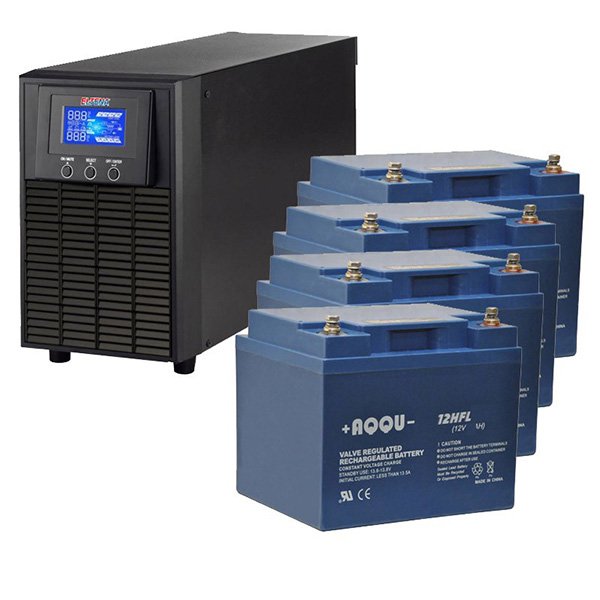
There are three types of uninterruptible power supply: continuous, interactive and standby. Offline and Online markings are also often found, which to some extent explains the difference between them.
Spare The UPS is an intermediary between the network and the built-in battery. It does not change the input voltage and most often does not control it at all. The device turns on only when the current goes beyond the set range, for example, when it falls below the set mark or when it completely disappears. This is the most budget option that does not produce noise and does not take up much space. But if the issue of saving is not in the first place, it is better to refuse it. Such a device is capable of providing energy only for a few minutes and does not have the ability to manually adjust the current and other characteristics.
Interactive the source is the next step in the development of the UPS. It analyzes the incoming voltage and reacts to the slightest fluctuations in the network. UPSs work as stabilizers, and when switching to an autonomous source, they do it very quickly and without changing the sinusoid. This principle of operation significantly increases the service life of the gas boiler board, which does not like vibrations. The interactive uninterruptible power supply normalizes all parameters and brings them to the optimal value.
Continuous UPS is considered the best for gas heaters. With them, power always comes from batteries, which the UPS constantly charges when there is current in the network. This allows you not to waste resources on adjusting the sinusoid during the transition and reduces the time for switching between modes to zero. Of the shortcomings, increased noise and the highest possible price tag stand out here.
2. Power
How to correctly calculate the power of the UPS?There is a common misconception that the power of the UPS should be the same as the total power of all boiler modules. This is not true. Starting currents are much higher than linear ones. For example, if you have a pump with a nominal value of 300 watts, then at the time of startup it will consume approximately 500 watts. Such a jump appears very quickly and disappears just as quickly, but if the uninterruptible power supply does not have an appropriate reserve, this will negatively affect both its operation and the life of the boiler's electronic modules. Some experts advise taking devices whose power is three times the nominal requirements of the boiler, but this is already too much. Doubling the digits is enough here.
Simply put, if your gas boiler consumes 1 kilowatt, then the UPS should be 2 kilowatts or a little more, but not less.
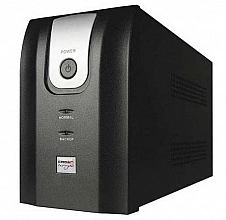
CROWN MICRO CMU-1000X
The best standby UPS with high build quality
3. Battery capacity
How long will the UPS run offline?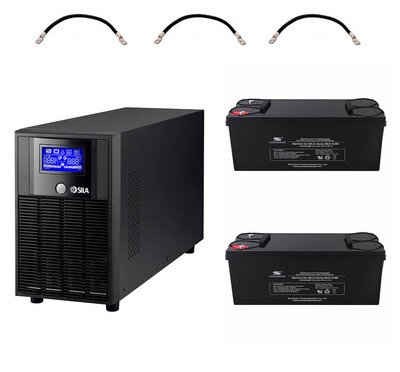
If your home has autonomous power, and the UPS is used only to switch the network to it, you can safely skip this tip. It applies only to those devices that are equipped with their own batteries, from which your gas boiler will work during power outages.
It is easy to guess that the higher the battery capacity, the longer the heating will be in the house, and this is an indisputable fact. In the description of each unit there is an indication of how long it will work at full load. In the cheapest models, this is a few minutes. In more expensive ones - up to a couple of hours. It's not worth waiting for more. There are also models with the possibility of expanding the capacity. They just need to buy a battery and connect it to the device, thereby increasing autonomy.
4. Switching speed
How quickly will the UPS change mode?If you decided from the very beginning to choose a continuous UPS, you do not need this advice. The fact is that backup and interactive sources are powered from the network, and at the time of a power outage they switch to batteries. It takes time, and the less time, the better. The valid range is 3 to 10 milliseconds. True, this parameter greatly affects the price of the device. But it should be understood that even the smallest gap in the current supply negatively affects sensitive electronics. That is why the best option is a continuous UPS, which always runs on batteries that are constantly being charged. It does not have a switch at all, it just stops charging the battery at the moment of a power outage.
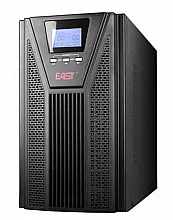
EAST EA901PS
Continuous UPS with capacity expansion
5. Waveform
What type of sinusoid is the most optimal for a gas boiler?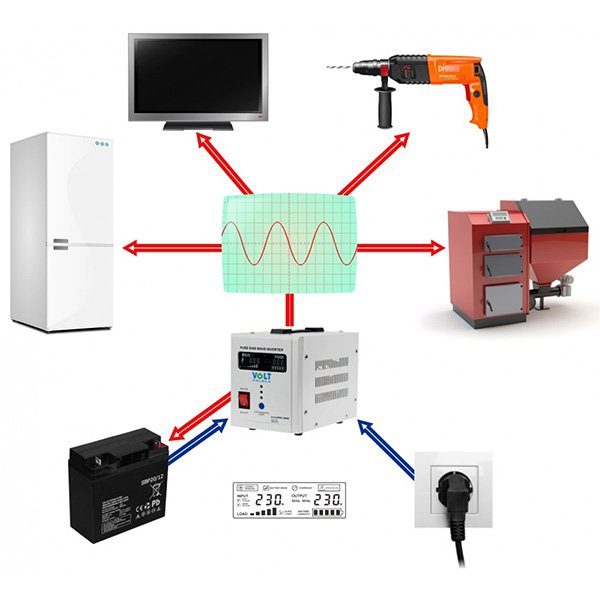
The output signal is in the form of a sinusoid, and the smoother it is, the better for the powered device. A sinusoid deviated from the norm by 8% or more is called approximate, that is, incorrect.
An approximate sinusoid may also be referred to as modified or quasi. If any of these names are in the description of the UPS, then it uses the “wrong” signal, which may adversely affect the operation of the boiler.
Bringing the sinusoid to normal requires the complication of the UPS and, as a result, its rise in price. Note that continuous or online sources are devoid of such a problem, which once again speaks of the rationality of their use. But even among interactive and backup devices, there are models with a smooth signal. A strong change in the sinusoid can lead to the inability to start the system or even to the failure of some particularly sensitive modules.
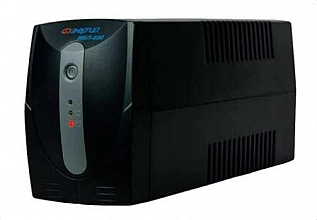
UPS Energy 600
Best price offer
6. Battery charging time
How long does it take for the battery to be fully charged from the mains?The transition to backup power can be carried out not only with a complete power outage, but also with its jumps. In old, worn-out networks, this happens very often, and the UPS constantly changes the source in order to keep the heating in the house and prevent the boiler from turning off. Simply put, batteries are constantly under load and the faster they charge, the better.It is impossible that the uninterruptible power supply allows the batteries to be completely discharged. Note that charging the battery requires additional power, which must be taken into account.
In a UPS with built-in batteries, as a rule, everything is already calculated, but if you increase the capacity with third-party batteries, be sure to calculate how long it will take for them to be fully charged and, based on this, select the power of the device.
7. Additional protection
What other protection options does the device have?The best uninterruptible power supply is the one that protects not only the gas boiler, but also itself. There can be many problems in the network:
- overload;
- short circuit;
- network interference;
- high voltage impulses;
- voltage drop.
Any of these problems can harm your UPS, and the more protection it has, the better. Ideally, choose a device with the maximum set of additional protective functions, but it will be expensive. The most extensive list is found in continuous devices. With them, your boiler is constantly powered by batteries, no matter what happens on the network. Troubleshooting is done directly at the UPS without reaching the powered device.
8. Connectors
How many outlets and connectors does the device have and what type are they?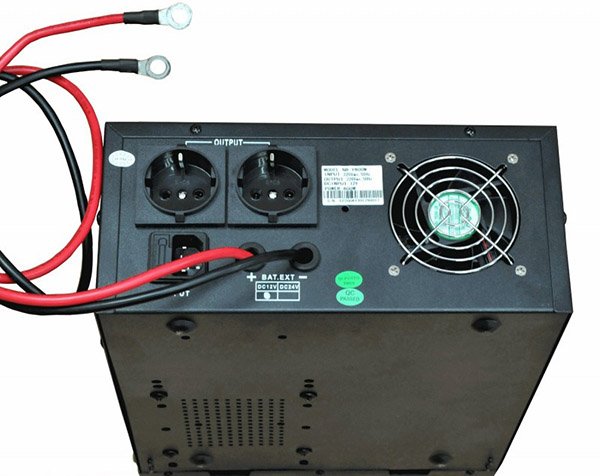
If the heating in your home is provided by a multifunctional, double-circuit boiler, you will only need one outlet. But when designing complex systems consisting of several modules, you will have to connect many devices to the network at once. For example, often the pump is placed separately, and, accordingly, it requires an independent connection. Before choosing a UPS, clearly define which units will be connected to it.Of course, you can always use extension cords, adapters and tees, but this is inconvenient, and extending the wire is not the best option for highly sensitive electronics.
Also, some UPSs have connectors for connecting third-party batteries. Be sure to pay attention to them. If you ever decide to increase the capacity of the source, you will need additional inputs, and they can be designed for just one expandable module.
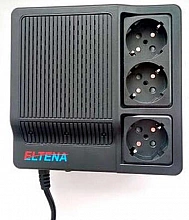
ELTENA (INELT) One Station 600
Compact 600 Watt UPS
9. Functional
What are the additional features that simplify or improve the operation of the UPS?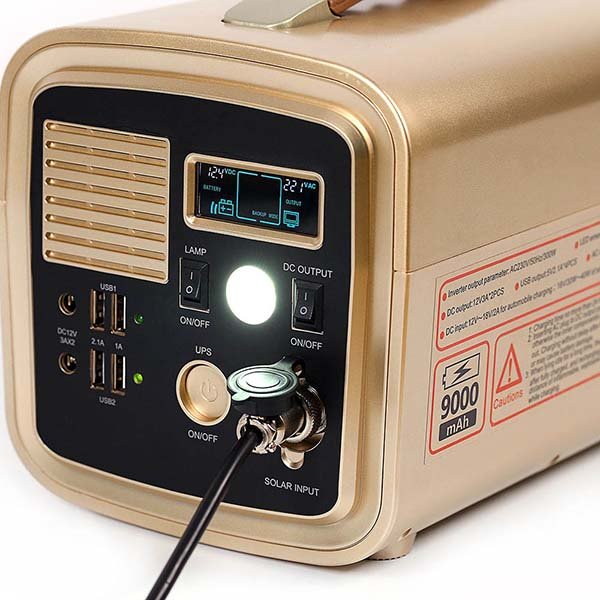
The more expensive the UPS, the more additional features it has. But in some cases, this is exactly the moment where you can save a little by refusing unnecessary additions. For example, if your gas boiler is located in a separate room, you will not need the sound alarm function for malfunctions. As well as a liquid crystal display with information, for which some manufacturers pretty much wind up the price tag.
Also often found is the cold start function, positioned as very necessary and useful. It allows you to start the equipment in the absence of voltage in the network. But if you have an interactive or backup UPS with small batteries, it makes no sense at all. You still won't be able to start the heating. But the most expensive feature is the GSM module that links your UPS and smartphone.There is already a matter of personal convenience and necessity.
10. Top Brands
Which manufacturers should be preferred?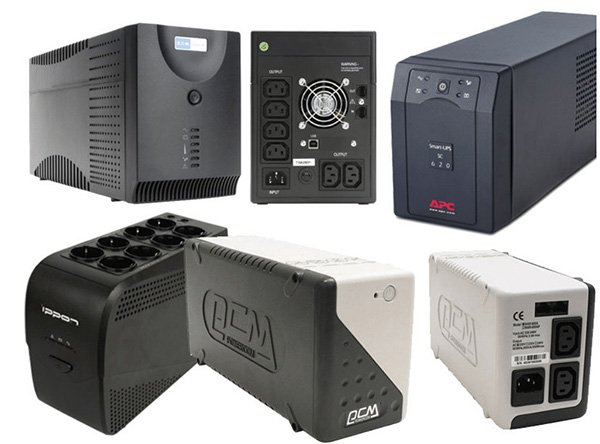
In the question of which UPS to choose, not the last place is occupied by the brand, that is, the manufacturer of the device. The company's products are most in demand among buyers Bastion, issuing sources TEPLOCOM. This is powerful equipment that can protect your gas boiler as much as possible from any network threats. He is advised by masters in the installation of heating systems, but the price here breaks all records.
The company will help you save a lot Svenalso well established in the market. She has a large range of UPS for various purposes and with different characteristics. You can choose the unit specifically for your needs without overpaying for features that you never use.
Do not forget about the Russian brand Energy. Whichever source you choose, it will be of high quality and with the highest degree of reliability. Here is a popular brand Resanta - not the best choice. As practice shows, its UPS does not have sufficient reliability to work with the sensitive electronics of a gas boiler.
The best UPS for a gas boiler
Top 5. Ippon Innova G2 3000
The use of a dual converter means that even with a stable load on the network, the UPS still powers the donor from the battery. That is, the sinusoid is always stable and does not change during sharp transitions. All due to the fact that these transitions do not exist in principle. The device just stops charging. Personal batteries will last for about half an hour of work. This is not much, but the capacity can be expanded.There are several appropriate connectors in the chassis, allowing you to connect auxiliary modules both in parallel and in series. A separate plus will be simple operation and a display that displays maximum useful information.
Top 4. CROWN MICRO CMU-1000X
Compact UPS, equipped with a mass of protective functions. An interactive type system is used here, but due to the rapid transition to offline sources, the donor hardly notices any changes. During the period of inactivity, the device practically does not consume electricity, and is considered one of the most economical. On board there is its own stabilizer that protects the network from sudden drops. It can equalize the current when it drops to 110 watts and when it rises to 280. This range means that the transition to offline mode will be carried out only in really extreme situations, and not at the slightest jump, as is often the case with other UPSs.
Top 3. EAST EA901PS
Powerful uninterruptible power supply with two own batteries and the ability to connect additional modules. The energy of the UPS's own batteries is enough to provide the donor with electricity for 15 minutes. The transition to autonomy takes 3 milliseconds, while the sinusoid practically does not change its shape, which favorably affects the sensitive boards of boilers and other electronics. For convenience, the UPS is equipped with its own LCD display and has the ability to configure some parameters.In particular, you can manually set the aspects in which you need to switch to batteries.
Top 2. ELTENA (INELT) One Station 600
Despite its compact size and simple form factor, the One Station 600 UPS is capable of providing the boiler with energy for 15 minutes with an instant transition to an autonomous source. It uses a redundant type system, but the transition speed is only 3 milliseconds, so that the donor board is not adversely affected by a sharp change in the sine wave. Unfortunately, the battery capacity is quite small, and it is impossible to expand the volume of the device with additional batteries. There are three sockets at once, each of which has its own grounding.
Top 1. UPS Energy 600
Energy 600 is an uninterruptible power supply designed to work with the most sensitive electronics. An energy stabilizer is installed on its board, which protects the boiler board from drops and sudden surges. In the event of a complete shutdown, there is an almost instantaneous transition to the battery. The transition time is only 1 millisecond, which is a very good result. The battery itself is quite small. Its charge is enough for just a few minutes of work. But if necessary, the capacity can be expanded by additional modules connected to the UPS through a special connector on the rear wall.













